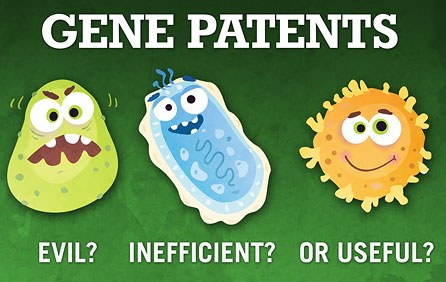Will genetic cures proceed without genetic patents?


Software is an ingredient in any tech solution, but it's math. Those who argue against software patents find patenting math absurd on its face. Those who favor such patents consider them necessary to innovation.
Similar arguments exist in health care over genes. Genes are like software, in that they are an ingredient in a range of new cures for disease. But genes are also a fact of nature. We all have DNA. So opponents of genetic patents argue such patents are as absurd as those on math.
Yesterday, U.S. District Judge Robert Sweet agreed with the opponents, striking down seven patents on genes involved with breast and ovarian cancer. (The picture is from a good discussion of genetic patents from the American Enterprise Institute, published last year.)
The patents were held by the University of Utah and Myriad Genetics. Myriad shares fell over 5% on the news. The full name of the case is Association for Medical Pathology vs. the U.S. Patent and Trademark Office.
The plaintiffs, which included the ACLU and Public Patent Foundation, argued that genes are product of nature and thus not subject to patent. The defendants argued that removing DNA from a patient transforms it and makes it subject to patent, adding that the Supreme Court has upheld patents on living organisms since 1980.
Myriad was capitalizing on its patent rights with a cancer test on which it claimed a monopoly.
Assuming Myriad's appeal of the ruling fails, the question is what impact this might have on genomic research.
In the short term, not much. The decision is not binding on other courts, nor is it binding on other patents. The Genomics Law Report notes that a final decision could be impacted by the Supreme Court's final ruling in the Bilski case, which is still being awaited.
And thus my two beats come together.
The real question, which I'd like y'all to consider closely, is what impact this decision, if upheld, might have on the pace of genetic research and the development of tests and cures. How necessary is it to create monopolies on the building blocks of solutions, as opposed to the solutions themselves?